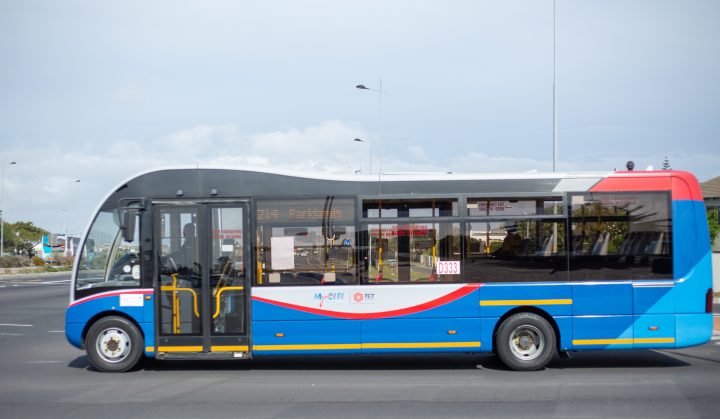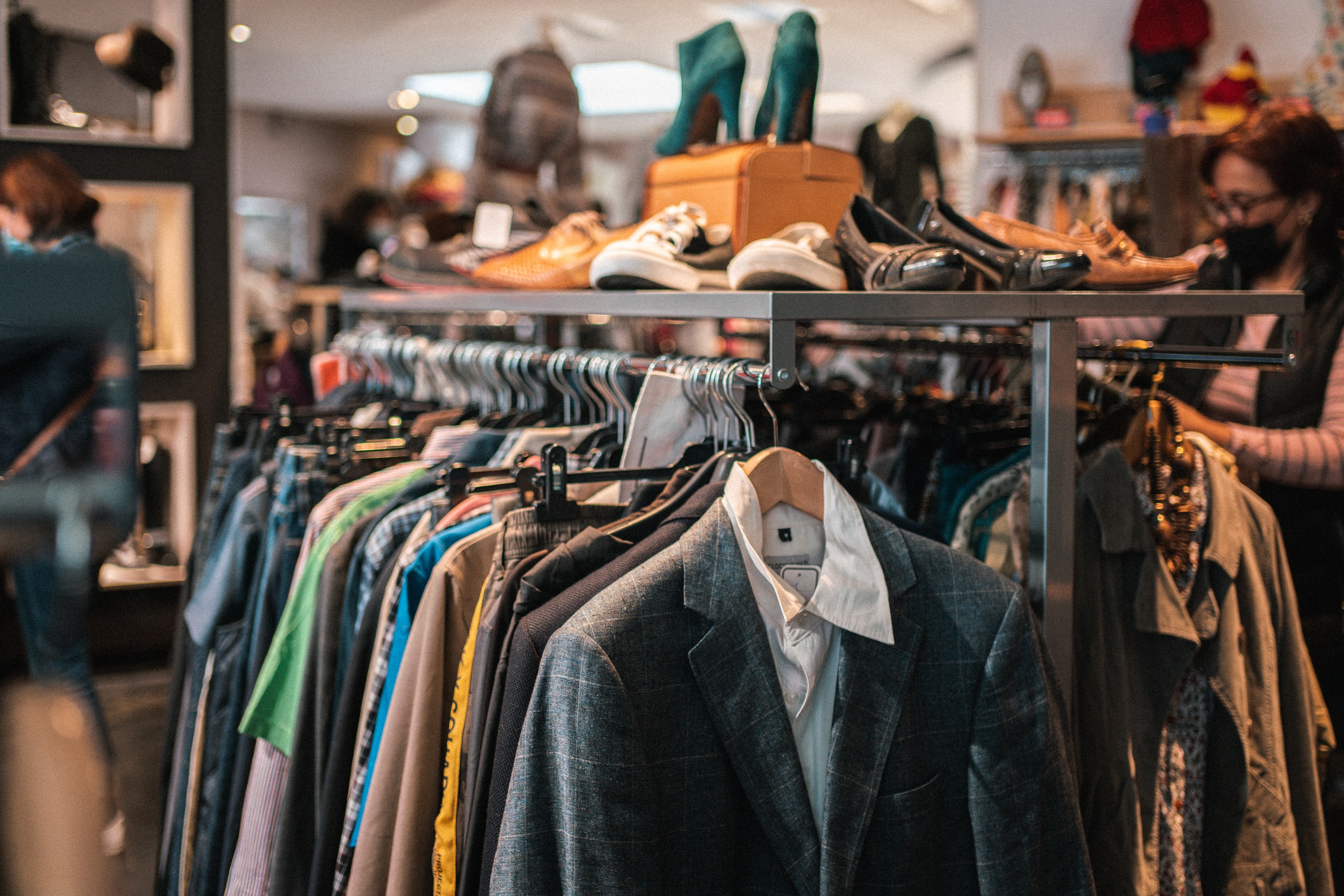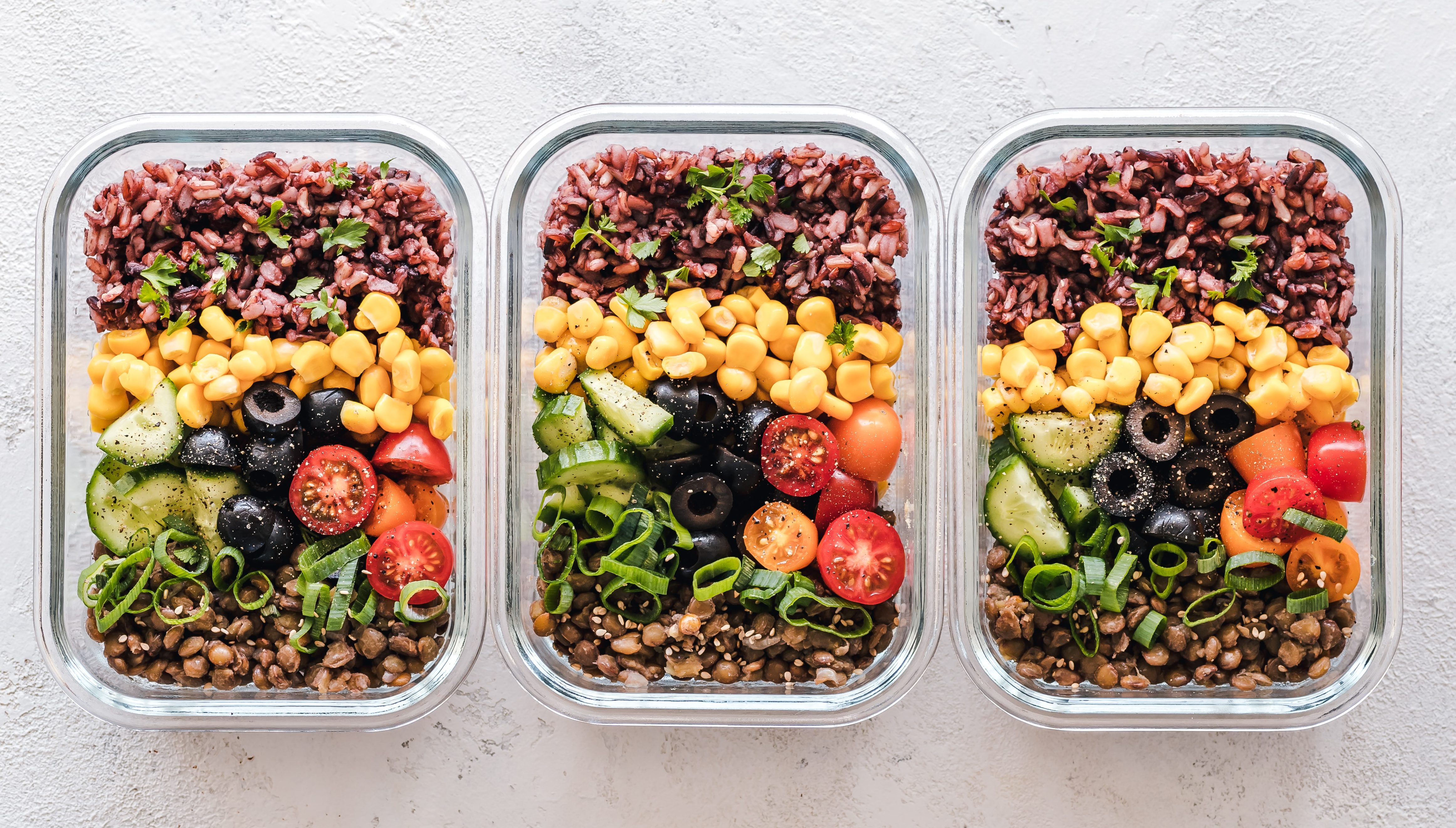THE BURNING PLANET
Here are few changes you can make to help offset (even a little) the climate crisis

It’s understandable to feel overwhelmed by climate anxiety, and hearing that things are only getting worse may leave people feeling hopeless. However, there are things they can do in their personal lives to make a difference.
In recent months, the evidence of climate change has been stacking up, as many parts of the world are experiencing unprecedented heatwaves.
In Europe, for example, “there’s a clear climate change contribution to the intensity of the heatwave”, explains Professor Mark New, who specialises in climate change monitoring at the University of Cape Town.
“A heatwave is generally produced when the large-scale circulation over a particular area becomes static, and, and you end up with conditions that just continue to bring in warm air from further south. So, in the case of Europe, you had circulation conditions that just kept on pumping and holding warm air over that particular part of Europe.”
There are two factors that mean climate change is affecting the risk of more severe heatwaves, New says. “When you increase average temperatures, you, by default, increase the extremes associated with them, because you’re shifting the average.
“Then, what seems to be happening in Europe is that the circulation systems that lock hot air in a particular place are happening more frequently because of climate change. You’ve got a combination of things being warmer overall, and then the meteorological conditions that actually produce a heatwave are becoming more common as well.”
Climate anxiety
A study published in 2019, “The Future of Urban Consumption in a 1.5°C World”, by academics at Leeds University, Arup and C40 found that C40 cities – including Cape Town, Johannesburg, Tshwane and Durban – produce consumption-based emissions that contribute to 10% of global greenhouse gases. This means that of the total greenhouse gases emitted, a 10th is made up of emissions that are created when people consume goods and services every day.
It’s a concerning number, but it also means that everyday consumers have the potential to decrease emissions by 10% by simply making changes in their personal lives and buying habits.
Researchers put together six key ways cities around the world and the people who live in them can reduce consumption-based emissions to reduce a climate breakdown. “Urban action on consumption can significantly reduce emissions from key consumption categories,” the report stated.
It also posited that cutting consumption-based emissions is not only lifesaving for the planet, but has a range of benefits for individuals when it comes to health, finance and lifestyle.
“Cutting consumption-based emissions will deliver wider benefits for a city and its residents. Individuals, businesses and city governments all stand to gain if changes are delivered in the right way.
“A city that consumes sustainably can also be a city where residents’ health is improved and mortality rates are lowered, where it is safer to walk and cycle, where there is more public space, where there is cleaner air, where water and land are used effectively, and where housing is more affordable.”
What steps can I take?
The 2019 study found that emissions associated with food accounted for about 13% of total consumption-based emissions in C40 cities and, of that, 75% stem from animal-based foods.
“Adopting dietary change is the consumption intervention with the greatest potential for emissions reductions,” the paper said. It might not be anything new, but the research proposed that people cut down on individual meat consumption from 58kg on average per year to 16kg, and dairy consumption to 90kg from 155kg, all by 2030.
In addition, households can reduce their household food waste: using all food that is bought and only buying what a household needs; and instead of throwing food away, incorporate it into other dishes or meals before it goes off.
Looking at the clothing and textile industry – which according to the report made up 4% of C40 cities’ consumption-based emissions in 2017 – the study found that the impact of reducing the number of new clothing items that individuals buy could significantly exceed the impact of cutting supply-chain waste.
How can we do it? By only buying new clothes when absolutely necessary and limiting purchases to three to eight new items per year, taking care of clothes already hanging in cupboards, mending rather than throwing away and supporting local thrift stores.
Another option is using fabrics made from recycled textiles. Rewoven, a South African manufacturer, diverts textiles from landfills and recycles and revives them to give them new life. To date, Rewoven claims it has diverted almost 500,000kg of textile waste that was on its way to landfill.

Instead of buying new, support local thrift stores. (Image: Hugo Clement / Unsplash)
Repair rather than throw away
The use of electronics and household appliances has grown substantially over the past few decades, the report states, and the industry makes up 3% of total consumption-based emissions. The research found that by keeping devices and appliances longer, 33% of emissions could be saved by 2050.
To achieve this, individuals are encouraged to repair items when possible instead of buying new, and aiming for a seven-year lifespan for electronics and devices – something not always easy to do though as this article by Malibongwe Tyilo, “What Apple’s iPhone and other tech products reveal about the bullying tendencies of modern-day monopolies”, explains.
Visit Daily Maverick’s home page for more news, analysis and investigations
Use public transport whenever possible
In 2017, the use and manufacturing of private cars made up 8% of consumption-based emissions in cities. The study sets out a rather ambitious goal: having no personal vehicles in cities at all by 2030, or at least decreasing ownership to 190 vehicles per 1,000 people. It takes into account electric vehicles, but counters that the emissions from manufacturing these would mean that emissions targets would still be higher than desired.
“A big source of emissions is transport, so if you can find ways to reduce these emissions, that really makes a big difference,” New says. “It’s not always easy; middle-class South Africans are notorious for driving to work on their own in their car. But car-share schemes and company bus schemes, I think, can make a big difference, while we wait for, hopefully, a public transport system that enables us to actually not have to use cars.”
It’s a big challenge, says New, adding: “Just trying to do your bit is important, because it sets a culture. So, if the culture was around minimising emissions, and the default is to car-share rather than drive on your own, then I think that can make some kind of difference on a personal level.”
Driving is not the only culprit: emissions associated with flights in C40 cities made up 2% of the total consumption-based emissions in 2017, and the industry continues to grow rapidly.
“This may seem relatively marginal compared with other sectors examined in this report, but air travel is one of the most carbon-intensive activities that individuals can personally undertake,” the study stated.
Research recommends that individuals decrease their dependency on flying and use other modes of transport or travel more locally, such as taking one short-haul flight (less than 1,500km) every two to three years per person.
Individual actions can make a difference
The report acknowledged that many of the changes proposed need to be driven by governments and corporations, and that individual consumers cannot change the way the global economy operates on their own.
However, there are individual actions people can take that should not be dismissed or downplayed.
“It is ultimately up to individuals to decide what type of food to eat and how to manage their shopping to avoid household food waste. It is also largely up to individuals to decide how many new items of clothing to buy, whether they should own and drive a private car, and how many personal flights to take,” the report said.
“Individuals, when they act collectively, can drive or push political agendas, from local municipalities up to the national level. Thinking about how you use your voice is also a personal thing that people can actually actively choose to do,” New says.

To avoid food waste, use leftovers in other meals. (Image: Ella Olsson / Unsplash)
Dr Joel Millward-Hopkins, who specialises in renewable energy solutions at the University of Leeds and who contributed to the paper, encourages people to be more active in finding solutions to climate change and preparing for the future.
“Start investing heavily in all the things we need to have a low-carbon future, even if they are expensive today; energy-efficient houses and transport infrastructures; renewable and other non-fossil energy systems like nuclear. The broader social and economic benefits of climate action have been shown repeatedly; better health from more active travel and healthier diets, warmer homes… It’s about so much more than climate.”
Take the jump
In response to the report, a “joyous, people-led movement”, the Jump, was born: an organisation that seeks to inspire people to make six shifts in their lives to play their part in offsetting climate change.
Jump also stresses that it is the responsibility of policymakers, corporations and governments to make the big changes, but the campaign encourages people to “take the jump” and play their part where possible too:
- End clutter. Keep electronic products for at least seven years and repair where possible;
- Eat green. Eat more plant-based meals and decrease the amount of meat in the diet. Avoid waste by eating healthy portions and only buying what is needed;
- Dress retro. Avoid buying new clothes and support sustainable and green fashion companies;
- Travel well. Use public transport when possible and car-pool. Avoid buying new vehicles unless essential;
- Holiday local. Avoid air travel and support local tourism; and
- Change the system. Make at least one change to help transform the system. For example, switch to solar energy, invest in green banks and investors or protest to political representatives for change.
“Over the next 10 years, citizens and households really need to make all six of these shifts, however the most impactful ones are ‘eat green’ (food) and ‘dress retro’ (clothing), because these two sectors have such high impact on the environment,” Tom Bailey, co-founder of Jump, told Maverick Life.
Millward-Hopkins agrees, saying food and clothing are where he sees individuals could change their behaviour for the most benefit, followed by electronics and aviation.
“People don’t always have so much control over the buildings they are in, and transport choices are shaped strongly by infrastructures. In contrast, meat, fast fashion, yearly smartphone changes, and flying for leisure, are all things that can be given up overnight, albeit putting social norms and pressures aside,” he explains.
“Food then emerges as perhaps the area that individuals can have the most impacts, as not only do individuals have a lot of agency, but food as a sector is a large contributor to emissions (unlike clothing). Plus, meat is getting more expensive while the price and quality of substitutes is falling.
“Every little bit helps, but to make a real impact we really need to change our consumption patterns very broadly.”
New study: The Power of People
Since the first report was published in 2019, Jump and Arup have released a second report in 2022, “The Power of People”, which investigates the “huge impact citizens and communities can have in preventing ecological breakdown”.
This report found that ordinary individuals can influence 25% to 27% of the emissions savings needed to avoid ecological meltdown by 2030 when they make these lifestyle changes.
“To influence the remaining 73% of emissions, citizens could take action that encourages and supports industry and government to make the urgently needed [changes],” the report states.
Bailey believes many people do genuinely care about climate change, but feel “powerless and confused about what they can do”.
“‘Take the jump’ is very clear that this is about ‘just starting’ and doing our best, no one can be perfect straight away, and that’s fine. Our focus is on supporting and inspiring each other, never shaming! Making people feel guilty isn’t helpful, but inspiring people about a bright future of ‘less stuff and more joy’, that’s focused on people and the planet, that’s how we get people to change. Listening to people, understanding why it’s hard to change, and supporting each other,” he says. DM/ML



















 Become an Insider
Become an Insider
Hopefully the government of the day wont tax car pooler’s and those that use solar power by increasing rates. Hopefully they can stop the COP17 gathering in Egypt and do it by Video Conference, instead of all the flying and driving that needs to be done by delegations of over 200 countries all over the globe, just to get there. Sarah, I commend your ideas. What we need now is follow through. By the way, How old is your laptop & cell phone?
changing diets – especially meat reduction – is a completely misguided contribution for individuals in South Africa. Almost all studies and papers reference northern perspectives and economics/inputs. In South Africa we are fortunate to have large areas of natural grassland, savanna and shrubland that supports wildlife and stock and produce meat as a completely natural by-product. So to have a contribution in SA, think of the type of meat, and where it comes from (avoid all feedlot beef or lamb sure), and promote local, and wild harvested game wherever possible. Worry more about buying imported products and those grown in crazy ways (peruvian asparagus, spanish fruit, californian almonds, turkish lentils etc). But cutting good, healthy natural meat out wont make any useful contribution to climate
Buy 2nd hand cell phones, dispose of electronic waste via dedicated disposal companies and cut time in the car by grouping errand trips. Walk or ride a bike to local destinations. Don’t light the whole house just the room you use. Use a solar torch as a light where you don’t need sharp visibility. Give things to charity shops. There’s a lot the individual can do. What is a bit dispiriting is the ceaseless commercial push to buy regardless. Literally business as usual as if nothing has changed.
I’m trying to get electronic journalists to cut the length of their articles. This one could be half its length. Please, Sarah, pretend there are traditional sub editors and column inches involved.
Whilst using Public Transport is a key method of reducing travel emissions walking and cycling are even more effective. They also give the added benefits of health and greater cost savings for the users.